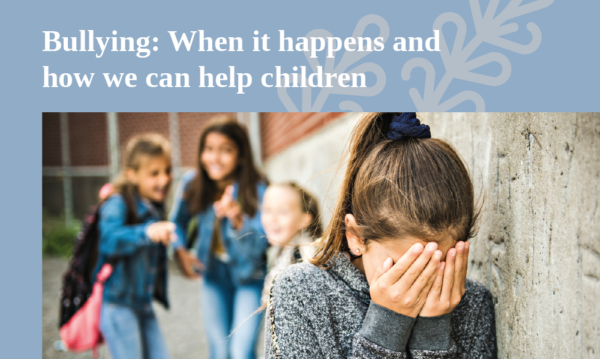Incidents of bullying and aggressive behavior that have often been observed in schools in recent years by some pupils are not an emerging and modern phenomenon; they have always existed in schools, perhaps in different forms and extent. However, it did not receive the attention and management required by the past’s indifference to have been replaced by a particular sensitivity to the treatment and prevention of such phenomena by all stakeholders (e.g., parents’ and guardians’ associations, teachers’ associations, etc.). Public opinion plays an important role; Due to the easy access to the emergence and discussion of such incidents, the public stands with a critical attitude towards treating and preventing such phenomena of verbal or physical violence.
Children who become perpetrators of bullying are usually children who have somehow been trained in violence and have practiced violent behavior at home, accepted by their surroundings. There may also be children who regularly see violence in their home, e.g., the father hits the mother (not necessarily the child himself). They may even be children who experience a strong need to prove to those around them what they are worth and what they can achieve and, by mocking, harassing, or hitting younger or physically weaker children, regain the strength they need and prestige.
On the other hand, the children we would describe as victims of bullying can be physically or psychologically “weak” with several insecurities and phobias, with reduced self-esteem, who cannot defend themselves by standing up. They may be children who have not learned to speak for themselves because usually older people respond instead and may often be underestimated and depreciated. They may have grown up in an environment where they repeatedly heard a lot of “no’s,” “Don’t go up there,” “You can’t/don’t know how to do this, I’ll do it myself.”
The parents’ role, in any case, is crucial and critical. Initially, it is necessary to create an environment of acceptance at home. When children experience appreciation at home, they feel more able to deal with emotional stress and problems with peers without resorting to aggressive behaviors and all kinds of violence. Besides, parents’ active participation in children’s lives can help children come closer to their parents, discuss solutions with them, and offer guidance on any severe issues/problems that arise in relationships with peers and their daily lives in general. Furthermore, it would be useful for them not to get into the process of evaluating and criticizing their children’s preferences and decisions but welcome them as expressions of their autonomy and responsibility.
The child needs to be taught how to express himself unequivocally – that is, without becoming aggressive or tolerant, accepting any teasing without reaction – and this can be learned within the family context. Parents can teach children to observe their body signs to understand when they feel uncomfortable in a situation (e.g., a knot in the neck, tightness in the stomach, cold sweat). Children need to know that they can speak with positive communication and dynamic behavior to defend themselves. They can practice assertive behavior by trying role-playing games with dolls, analyzing situations where they identify the conflict (in movies, stories, etc.) and how the characters should negotiate, using “I – messages” “I feel/ I feel……, when you…… and I need to……”, playing the mirror game, where parents display behavior or some words and children repeat with dynamism, making art (painting, play dough, etc.) for younger children or writing to record thoughts and emotions (use of a calendar, poetry, etc.) for older children. Suppose the situation is so intense that a normal conversation between the children involved cannot take place. In that case, the child needs to immediately contact any adult nearby, as physical security, which is non-negotiable, comes first.
The warmer, more confident, and respectful the relationship between the parents and the child has been cultivated, the more he will believe in his powers and will be able to defend himself in any situation. The key lies in affirmation, acceptance, and empowerment.


